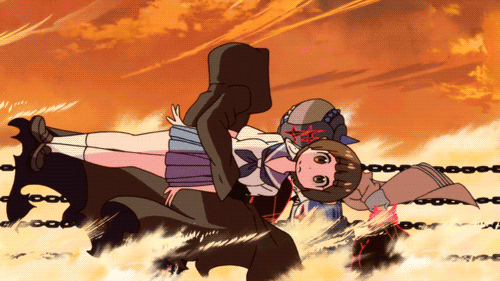zarx said:
QuintonMcLeod said:
But the key word is profit. Seems to me that Platinum knows how to manage their budgets better than Airtight. Bayonetta 1 didn't earn 2 million within its first month. Neither have any of their games. Airtight would be in the same boat if we look at profits within the first month (which is how long it took for Airtight to go under after they released MSS). The only difference here is that Airtight just didn't know how to set their finances in order and Platinum Games did. This is the problem I'm trying to point out.
I'm not saying developers _can't_ make AAA games. If they can afford to (Rockstar) then they should! However, some of these developers know they can't afford to make AAA or even AA games, but they do so anyway, and it kills them. Among those types of games, we have to factor in reckless spending. Many developers just spend money like it's water. Then you have other developers who ignore entire markets (mainly Nintendo's market), and they go under. It's under my belief that if a developer wants to become successful, they target all markets (Nintendo's included). Platinum targets every market. They don't ignore any system. Meanwhile, many western developers do, and they go away very quickly.
There are obviously many factors, but the major ones deal with budget. These developers are terrible when it comes to budget. Nintendo profits from their games even though they don't sell millions of copies. Why is that? The answer is pretty obvious.
|
Platinum had a 4 game deal with SEGA so it didn't really matter that the games didn't have super strong day 1 sales. by the time the deal was done Bayonetta had become a quite good seller and they had a reputation for making high quality games. This allowed them to secure new projects like rebooting the troubled metal gear rising project for Konami and a multi game deal with Nintendo (which led to their worst performing game which was also their most expensive The Wonderful 101 but luckily it's the Wii U so the industry understands) and also more recently the creators of Korra wanted a high quality adaption and picked Platinum and Microsoft also picked them for their token Japanese game this gen (hey it can't go as badly as their JRPGs last gen).
Airtight didn't have day one sales, quality, legs or a good reputation for quick development so they died.
As for Nintendo they make some of the highest selling games in the industry and have multimillion selling games they consider failiures. WTF are you even talking about. Also as a platform holder they have higher margins on their games as they don't need to pay their licensing fee (~$8 per copy for retail iirc).
|
You seem rather confused. Infinite Space (a DS game) is Platinum Game's worst selling title [http://www.vgchartz.com/game/35541/infinite-space/]. You're starting to sound very very silly. Despite what deal Platinum Games had with Sega, that doesn't negate the fact that their games have sold poorly. Even so, Platinum Games didn't go bankrupt, because they didn't foolishly spend all of the money their publisher provided and Platinum Games was managed very well, unlike Airtight. Once again, Platinum Games didn't fooshly spend their money and they were managed very well. They made it so they continued to profit, despite low sales of their games.
Airtight Games had many issues going on with them. Their ability the budget their games and their abilities to do an assortment of things such as: releasing games without bugs, allocating budgets, signing deals with publishers, allocating resources and focusing their games onto several markets (which they simply REFUSED to do).
Airtight was formed back in 2004, but they didn't release a game until 2010. They were already struggling to get a game out the door. Their first game, Dark Void, was an hugely ambitious project, because they spent a lot of money to get it developed. They even had the composer of Battlestar Galactica compose its' sound track! It was a big budgeted game that flopped and flopped hard. They worked on an untitled game for about 8 months which was soon after cancalled. They released another game under the direction of Kim Swift. This game was created with a limited budget, but flopped anyway. Then after that, they started making mobile games, which profits for those games are uber thin. They released an Ouya exclusive game (which was foolish of them). Afterwards, they came out with another big budget game which flopped again. They've only worked on one major project at a time. The projects they've worked concurrently were the mobile games and the Ouya title. They came from making mobile an Ouya games to trying to create another big budget title. Airtight games was very poorly managed and they took on more than they could handle. This is what killed them. The budgeting was the major issue they had.
As for Nintendo, you still don't get it. Nintendo doesn't spend huge amounts of money outside of Zelda or even Mario. Yet, they still profit, regardless if they pay royalities or not. Nintendo doesn't even charge $60 dollars for all of their games - which would take up the portion any other company would take for licensing. Nintendo still has to pay retailers to store their games in their warehouses. Nintendo still has to pay to have their games shipped. These are added expenses you're not thinking of. Yet, even when a game such as Yoshi's Island on the 3DS flops, they still profit.

 @TheVoxelman on twitter
@TheVoxelman on twitter

















































